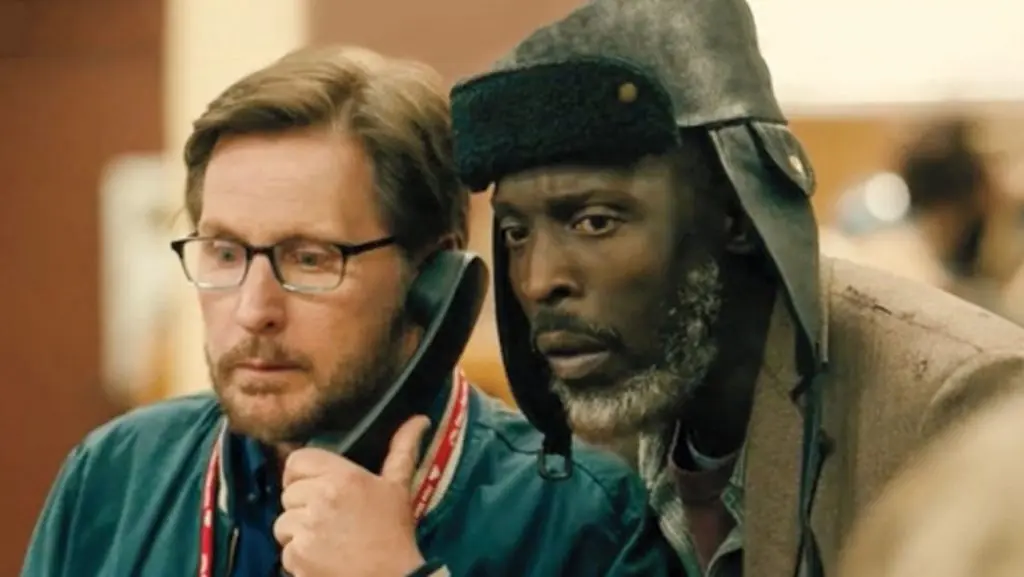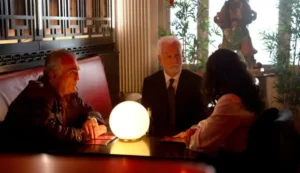Summary
When you combine The Public’s penchant for cheap sentiment and its social advocacy message, you get the equivalent of cinematic social conscience fluffernutter that is spread too thin.
It’s hard to watch anytime a director fails when their heart is in the right place. In fact, I’ve always had a soft spot for The Public‘s writer and director, Emilio Estevez. His films embrace their own inner melodrama instead of hiding it, which is refreshing in its own way. Unfortunately, when you combine a director’s penchant for cheap sentiment with a social advocacy film, you get the equivalent of cinematic social conscience fluffernutter that is spread too thin.
A common practice across the country inspired the Public. The opening of urban public libraries to allow the homeless to get off the streets during the day. These are government-funded buildings. You can’t turn them away. Sadly, when the libraries close for the night, there aren’t enough shelters to house the ever-growing population. This is the main point of emphasis in the film, where a string of brutally cold winter nights claim multiple lives simply because they don’t have a warm roof over their heads.
The filmmakers want you to ask, how would you help? Would you put your own job in jeopardy? Eventually, Stuart Goodson (Emilio Estevez), a librarian at the Cincinnati Public Library, is faced with this question when a regular patron and a homeless man named Jackson (Michael K. Williams) asks him if they can stay the night because all the shelters are at full capacity.
Estevez directs a deep bench that is cluttered with cliched characters. You have that old, cynical cop (Alec Baldwin). They just met the backstabbing politician (Christian Slater) and the company man (Jeffrey Wright). They even bring in that unusually involved love interest (Taylor Schilling). You then round out the cast with some cliches. The loyal assistant (Jena Malone) and the ambitious reporter would step over her own mother to get ahead (Gabrielle Union). The only characters I found refreshing were The Wire’s Williams. He plays a homeless man who organizes the non-violent occupy sit-in, and Traffic’s Jacob Vargas, a wisecracking library security guard.

Estevez’s script is like raiding your child’s bag of Halloween candy. You know, when you only find only a couple of Reese’s peanut butter cups in a bag full of Circus Peanuts. The concept of the film, a librarian’s role, and depictions of the homeless population that are mentally ill and impoverished are accurate. To illustrate that point, there is a scene where a homeless patron’s naked and causing a scene in a public library. If you research it, it happens more frequently than you think. It’s genuine. The rest is filled with multiple subplots that are nothing but filler. All added while offering nothing additional probative to the film’s main focus. When you combined this with a commentary that is too earnest for its own good and several overly hammy melodramatic scenes, the overwhelming sappiness weighs down its message.
Then, filmmakers are always so fond of several moments of the disingenuous variety; Slater’s politician character is running for Mayor of Cincinnati. His problem is that he is behind in the polls because the voters feel he isn’t relatable. Wouldn’t he be better served in displaying actions of human kindness? Like bringing in food and clothing? Even calling for an emergency shelter for his constituents? After all, he is a District Attorney that has to be tough on crime, but as a Mayor, you need to show the people you care about the greater good. Does he perform a photo-op and take a victory lap? No, he acts on a petty vendetta and resorts to spreading “fake news.”
Then there is Union’s ambitious reporter. She ignores evidence that the non-violent protest is not a hostage situation. She, of course, then spreads her own “fake news” because her coverage of the story is spiking her Twitter followers. Why is an even bigger scoop to falsify and report a hostage situation when exposing a mayoral candidate for lying about it? The kind of career-making story in itself you don’t find every day? Throw on top the obvious head-scratching moments of non-cleared personnel allowed to roam free past police barricades to keep fluff plotlines alive, and tell me why there is only one scene in the entire film that has anyone. Outside actually showing you can see their cold breath on the coldest night of the year?
Your opinion of Esteves’s film will depend on your enjoyment or disdain of its overtly sentimental melodrama. For me, judging a film on its face value is exactly the film you need to remake in the future, no matter the good intentions. They really had something special here but squandered the opportunity. Several subplots should have been scrapped to focus on the film’s main objective. Instead, The Public is the equivalent of cinematic social conscience fluffernutter, while the script’s social commentary is too earnest for its own good.




